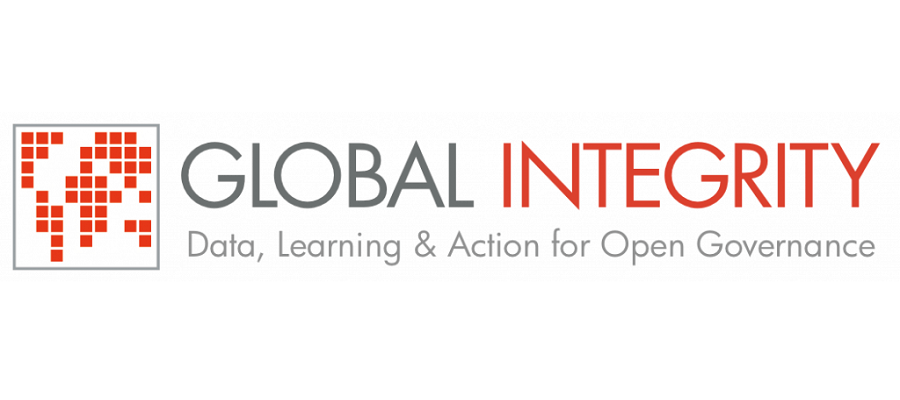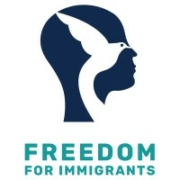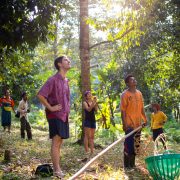My experience with Global Integrity: A case study in adaptive management
By Dan Flynn, MPP 2021
After spending six years in the workforce, primarily in government and politics, my primary purpose in pursuing a Masters Degree in Public Policy has been to transition to a more internationally-oriented career. The Global Public Affairs International Practice Pathways Fellowship, supporting research and learning abroad in the summers between my first and second year, was a huge draw.
I had initially planned to spend my summer in Malawi, working on the Presidential elections that followed the Constitutional Court’s annulment of the 2019 Presidential election results. Once it became clear that the state of the pandemic would not allow for those plans to come to fruition, I had to scramble, adapting in an uncertain context to find a way to productively spend my summer and engage in global policy from my apartment in Los Angeles.
Like so many GPA students,, the Global Public Affairs alumni network proved an invaluable resource. After connecting with Izabela Chmielewska (MPP 2015), Open Gov Hub Program Manager at Global Integrity, I was able to secure an internship with Global Integrity’s Integrity and Anti-Corruption team and have an exciting and meaningful experience despite all obstacles.
Global Integrity’s mission is to help people and organizations solve complex social problems by supporting locally led-innovation, learning, and adaptation. While much of the work done by actors in the anti-corruption and “good governance” space can be moralistic, normative, zero-tolerance, and one-size fits all, Global Integrity is pushing the field forward. The Integrity and Anti-Corruption (IAC) team focuses on supporting partners’ efforts to combat corruption-related challenges by helping them understand and address their root causes and taking actions informed by meaningful data and refined through ongoing reflection and learning. This approach helps address the complex power dynamics and patterns of incentives that drive corruption and entrench vested interests. The insights and evidence generated through Global Integrity’s work in numerous regions and sectors is helping to advance the global anti-corruption agenda, one partnership at a time.
Despite meaningful advances against corruption and toward the promotion of societal integrity, corruption in its many forms persists and most anti-corruption initiatives fail. Amid claims that “the aspiration to eliminate corruption now seems to many like a fantasy from the dreamy era of the fall of the Berlin Wall,” and growing dissensus on how to measure, diagnose, and combat corruption, it is necessary to take stock and ensure that the lessons of the last 25 years of anti-corruption practice shape the approaches of the next 25. Accordingly, my initial focus was to produce a complement to the organization’s recently released organization strategy Listening, Learning, and Adapting: A strategy for uncertain times. Working with the Director of IAC, this project was meant to solidify which IAC approaches fit within Global Integrity’s strategy, as well as why and how. By presenting the principles upon which Global Integrity’s IAC work is based, its relationships to ongoing projects, and sketching out ambitions and implications for new projects, this document was intended to serve as a thematic North Star.
Adapting to and prioritizing the needs of the organization and its partners, I was soon tasked with a different project. After Global Integrity checked in with over 70 partners, listening to how they are tackling challenges across operations, programs, and strategy to emerge from the COVID-19 pandemic more resilient than before, I began working with the Fiscal Governance team to create a curated database of over 650 (and counting) resources on COVID-19, fiscal governance, and anti-corruption.
The database collates relevant resources on pandemic-related fiscal governance in one place to make it easy for people to use existing resources to inform programmatic decisions, as well as identify fillable gaps in the current COVID-19 response and recovery efforts. It is available via Airtable and organized by tags, including type (“blog”) and technical area (“corruption”), and region. It is updated in a systematic way, including partners’ newsletters and multi-stakeholder forums.
Since my internship ended, I have been fortunate to have the opportunity to stay on at Global Integrity, continuing my work on the COVID-19 & Fiscal Governance database, with the IAC team, and on a new project that will be announced in the coming weeks.
Despite being confined to the walls of my West LA apartment, my internship through the IPP program allowed me to support the work of change agents around the world in combating corruption, gaining invaluable knowledge about the multifaceted nature of anti-corruption work and gaining exposure to local, regional, and global challenges. I am deeply grateful to Global Integrity, the Global Public Affairs Program, and the generosity of Michael Mahdesian for the opportunity to gain such meaningful experience and insight into what I hope to do with my life after Luskin.










Leave a Reply
Want to join the discussion?Feel free to contribute!